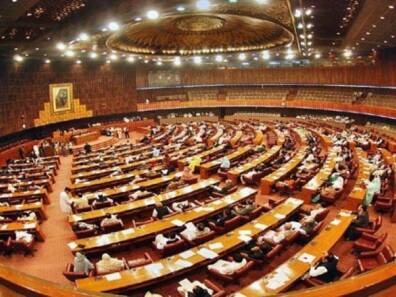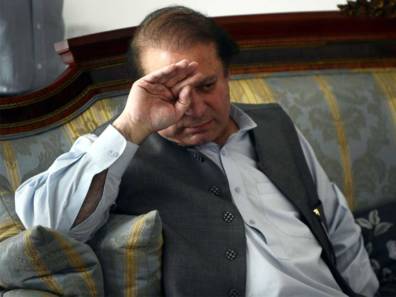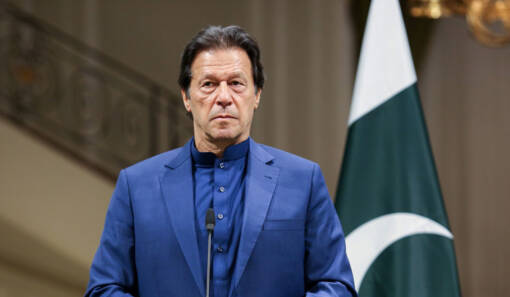Disclaimer*: The articles shared under 'Your Voice' section are sent to us by contributors and we neither confirm nor deny the authenticity of any facts stated below. Parhlo will not be liable for any false, inaccurate, inappropriate or incomplete information presented on the website. Read our disclaimer.
This story has been submitted by Syed Anzal Abbas Jaffari.
President Dr. Arif Alvi promulgated a presidential ordinance to amend the following sections of the Election Act 2017: 81, 122, and 185. According to these amendments, the Senate elections will happen through an ‘open’ and ‘identifiable’ ballot. However, this ordinance application is subject to the Supreme Court’s pending opinion in Reference No. 1 of 2021 filed by the government of Pakistan.
[adinserter block= “3”]
The presidential ordinance will undoubtedly create more resentment in the rank and file of the opposition parties. All the opposition parties have vehemently opposed the government’s bid to conduct Senate elections through an open ballot.

Senate elections through open ballot
PPP’s Chairman Bilawal Bhutto Zardari argued that his party would not let the government destroy Senate elections’ ‘sanctity’. Vice President of PML-N, Maryam Nawaz also voiced similar concerns and vehemently opposed the recommendation.
The mention of the Senate’s election procedure and composition is found in Articles 59, 218, and 226 of the Constitution. It says Senate adequately represents the spirit of federalism in Pakistan as its manifests equal representation of all the provinces. Unfortunately, the Senate elections have always been a cause of controversy in national politics because of alleged ‘horse-trading’.

Former PM Nawaz Sharif has been at the center of corrupt electoral practices. He ‘purchased’ the votes of PPP’s sitting members of the National Assembly to overthrow Benazir Bhutto’s government in 1989. It is no secret!
Then Benazir Bhutto responded in the same manner. She tried to manipulate Sharif’s party members’ loyalties in Punjab. Sharif resisted this attempt by ‘reclaiming’ his party leaders’ loyalties in the infamous series of meetings held in Changa Manga. Despite a tough tussle, Benazir ultimately resisted the efforts of removing her government through a ‘no-confidence’ motion.
[adinserter block= “10”]
This dark tradition of the corrupt practice continued to dominate the 2015 polls. At that time, the PML-N was unable to elect their nominee for Senate Chairman. On the contrary, PPP and the other parties elected Sadiq Sanjrani as Chairman and Salim Mandiwala as Deputy Chairman Senate.
PPP was accused of manipulating the electorate of the Senate in the provincial assemblies of Sindh, K-P, and Balochistan. PTI’s Chairman Imran Khan expelled more than 20 members of his party from the K-P Assembly. They allegedly sold their votes in the Senate elections.
Rigging & floor-crossing
A Senate committee presented its report in May 2016 on rigging and floor-crossing during the 2015 elections. The report recorded conflicting opinions on the proposition of holding direct elections for the Upper House (Senate). However, the committee reached a consensus on reforming the electoral process to mitigate floor-crossing chances.
Seasoned parliamentarian of PPP Senator Farhatullah Babar is quoted to have said, “Secret ballot is the basis of corruption in the Senate elections.”

This menace can be curbed by making an appropriate amendment in Article 226 to provide for an ‘open ballot’. Senators including Moulana Abdul Ghafoor Haidri, Mir Hasil Khan Bizenjo, and Shibli Faraz supported constitutional amendments to curb horse-trading. The committee’s final recommendations stated that the name of MNA/MPA should be printed on the ballot paper. It also proposed that the parliamentary leader of respective legislatures should access data of their party members’ votes.
Senate’s committee also reviewed the proposal of ‘direct elections’ in the upper house. Most of the members rejected the proposal while terming it as an ‘expensive’ exercise. A study shows that both models of direct and indirect elections in the upper houses are in place. India’s Rajya Sabha also called the Council of States, replicates the Pakistani model with minor differences. Whereas, the states directly elect the US Senate since 1913.
[adinserter block= “4”]
It is fair to conclude that the principles of political parties in Pakistan are subject to their changing political goals. In principle, all stakeholders should support Imran Khan’s efforts to eliminate horse-trading in Senate elections.
Also Read: Fawad Chaudhry’s Ministry Develops E-Voting Machine – Are Fair Polls Possible In Pakistan?







